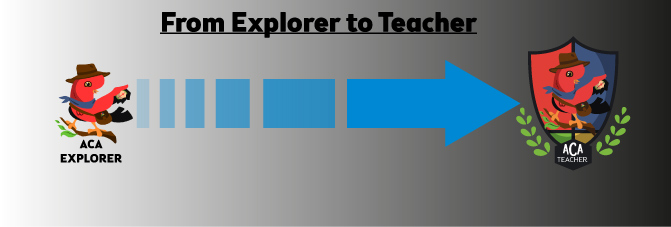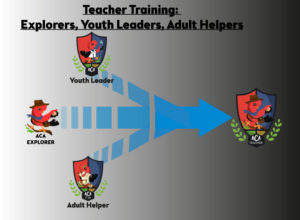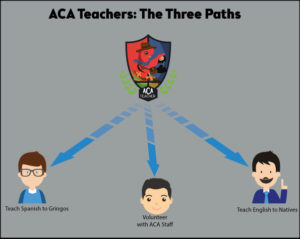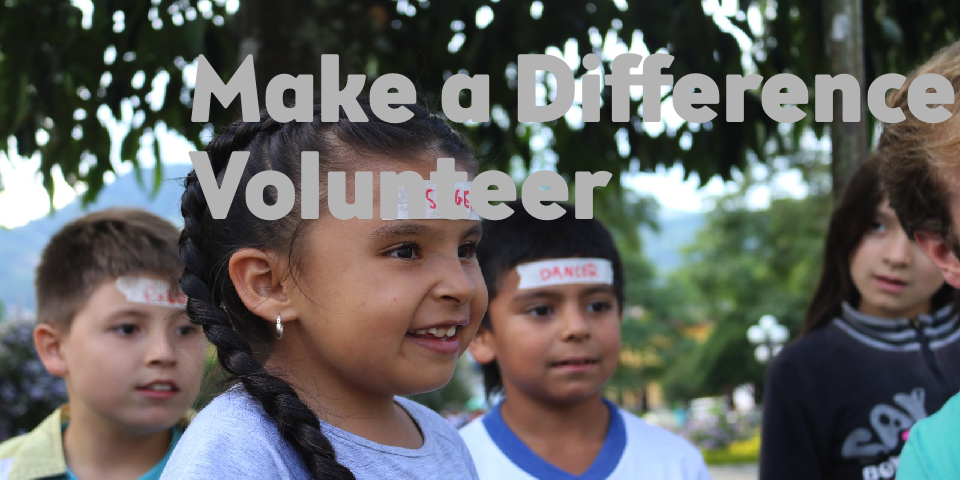As we close out another week of lessons for the ACA Explorers, I am want to think about what the future holds.
The coming week is clear enough:
- an action story to review last week’s words
- flash card lessons to add this week’s words
- pronunciation for k-g minimal pairs and further work on aspiration (with h-k minimal pairs)
- Wednesday’s project
- Friday bingo (which has become a huge ‘student favorite’ and is such a good source of quality, comprehensible Input and pronunciation practice that it is too good to pass up)
- more work on the songs, adding new action words
- getting perhaps Michael and Mary Joe to do more teaching on their own
- getting more parents involved on the quest to find more volunteers
But what about further down the line? Do we really want to just stay in Jardín teaching our 6+ students forever?
Volunteers and Teacher Training: How ACA Explorers Will Grow
Admittedly, I can be quite the perfectionist. At first, the idea of handing off my methodology to someone else and just letting them run with it was terrifying to say the least.
But without doing something like that, ACA Explorers can never grow past the small group we have now.
Not to say that we aren’t making some really significant contributions. And not to say that, as creators and daily users of the ACA Method, we are more in tune with how the lessons should go than anyone else.
But we can change more lives by relaxing a bit, creating the perfect ‘hand-off-able’ template for the ACA Method, and training volunteers to be ACA Teachers.
From Explorer To Teacher

The big takeaway is that we want ACA Explorers to be a sort of Teacher Training Program.
ACA Explorers are not merely introduced to the ACA Methodology but also become apart of it – there is a lot of room for personal creativity and we stress that.
Furthermore, as they advance, Explorers are slowly encouraged to spend more and more time teaching the class and taking other, newer students (regardless of age) under their wing.
Who Else Can Become Teachers?

The big kicker is that any volunteer can become an ACA teacher – both the Adult Helpers as well as the Youth Leaders – either through enough exposure of the ACA Method and time spent helping teach to being involved with the occasional Teacher Training Programs.
The Three Paths of ACA Teachers: What Will They Do?
The ACA Method is universal, not just for languages, but for any teaching material.
Once we are confident in an Explorer or volunteers ability to teach the ACA Method, they can become an ACA Teacher. There are three paths an ACA Teacher can take…
- Teach Spanish to Gringos
- Teach English to Native Colombians
- Volunteer with ACA Staff
The idea is to empower Colombians of all ages; not only through education but also through career empowerment.
Ever since I heard of an NGO in Peru that recruits single mothers and teaches them to teach Spanish, I became fascinated with the idea of making my own Teacher Training Program.
But I wanted it to be more than just giving them basic material and relying on their native pronunciation. A Youth Development organization was the perfect solution as it would allow me to teach all aspects of learning, teaching, as well as the values necessary to promote true intrinsic motivation and a passion for learning!
We already successfully do (1) through www.ACASpanish.com but I would like the focus to be more on people more familiar with the ACA Explorers program.
(2) and (3) are the goals for the short and long term, and are in need of some recruiting programs…
Recruiting: Parents, Adult Helpers, and Youth Leaders
So how do we get volunteers?
Parents will be the easiest and will be perfect for the first round of recruiting.
The plan is to approach parents with kids already involved in the program and ask them what days they would be available to help out. And if the parents can’t we will suggest the possibility of other family members helping out.
While it isn’t going to be a necessary condition for being able to participate – I’d like to almost imply that it is, or at least try and get them to understand the importance of it.
Youth Leaders is the next stage most likely and will require going to local schools, speaking with teachers and administrators, and putting on a presentation of sorts for the students.
Adults I feel will come by either word of mouth, putting up flyers, or having more presentations supported by the mayor and other local officials.
What’s In It For The Volunteers?
How can we attract teenagers (and adults) to give up their precious free time to help us teach kids?
- Exposure to a great methodology to learn English
- Educational programs and activities, excursions to places around town and to other towns
- Access to games, language exchanges, movie nights, dance and yoga lessons, board game nights, etc.
- For adults: being able to put it on their resumé (this might get more play in a bigger city like Medellín)
- For youth: getting extra credit for their English classes at school for participating and helping us out
- Access to an online portal with feedback from other volunteers, exclusive lessons and content, and video conferences with Molly and I as well as other staff
The life blood of ACA Explorers will soon enough be other volunteers.
The ultimate goal is to be able to go to a town, talk to the mayor, present the program outline, find volunteers, and give them the basics (with, say, 10 basic Wednesday-type projects) to get them started.
In this fashion, ACA Explorers will be able to grow from town to town and instead of just impacting the lives of six fortunate kids from Jardín, we can impact the lives of every young person living in Colombia!

